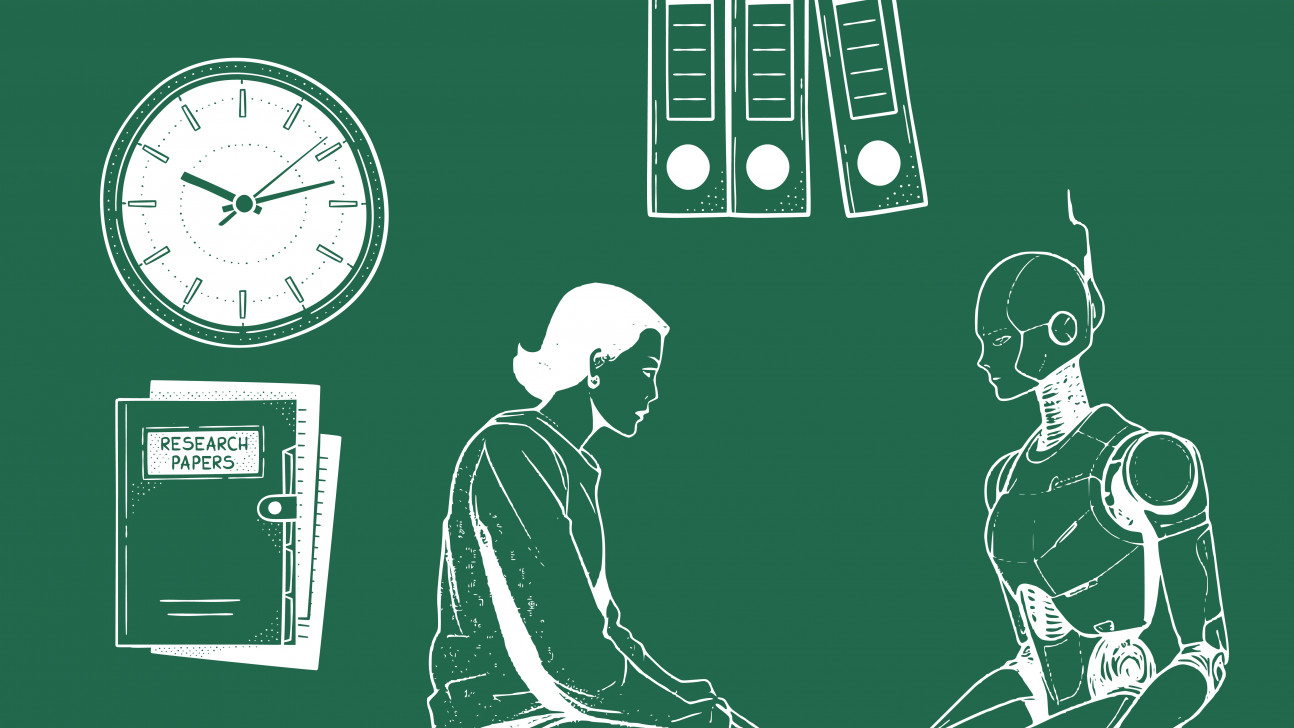Students need to be taught responsible use of AI

Since the concept of Artificial Intelligence (AI) emerged, it has become an integral part of university academia. The increased usage is also seen among Bangladeshi students. From simplifying complex concepts to generating entire assignments, generative AI technologies have undeniably changed how students learn and work. With this rapid adoption, a major concern arises: are we teaching our students to reason manually and critically before they head towards such tools for answers?
There is nothing wrong with embracing new technology. In fact, I welcome it, especially given our country's comparative gap in digital access. However, we must also recognise its potential to weaken essential human reasoning if used mindlessly.
AI is a powerful tool, but like a sword, it must be wielded with skill and intention. Some of the students I mentor for research sometimes rely on AI without first trying to form an opinion or construct an argument on their own. Research by the Massachusetts Institute of Technology suggests that, over time, this can create what they refer to as "cognitive debt"—a reduction in brain connectivity and problem-solving ability when external tools are overused. We may be on the right track using AI to make our lives easier, but not by being unmindful. Before students rely on AI, they must engage their brains. Otherwise, what comes after is the gradual erosion of the strength of critical thinking that defines us as humans.
This is not just a theoretical concern. Bangladesh's National AI Policy 2024 rightly states that AI should be used to enhance education quality and promote critical thinking, not replace them. The policy calls for AI solutions to support problem-solving capacity. But in practice, we see a different reality: students often skip the thinking process altogether and go straight to the chatbot. This undermines the very goals the policy sets out to achieve.
Bangladesh's education system already faces deep-rooted challenges. For instance, the emphasis on memorisation and a lack of encouragement towards open-ended inquiry have created generations of students trained to recall, not reason. If we do not act now, the risk is not just academic dishonesty, but the long-term underdevelopment of intellectual independence.
Around the world, universities are already rethinking how they teach. For instance, the University of Washington in the US is redesigning its computer science curriculum with a bold message: "coding is dead." Director of the programme Prof Magdalena Balazinska explained this does not mean coding has no value; rather, AI can now handle much of the routine translation of designs into software. The goal is no longer to train coders, but to develop software engineers who can think critically, design intelligently, and guide AI tools effectively.
The same shift is required here. Teachers and institutions in Bangladesh need to urgently reconsider how curricula are structured. Are we training students to navigate ambiguity, ask better questions, and justify their claims? Or are we rewarding mechanical outputs that AI can easily replicate?
To be clear, this is not about being anti-technology or anti-AI. AI can be a brilliant partner in learning when students know how to think. When it is used prematurely, it robs students of the very skills they are supposed to develop in their academic institutions.
Students should be encouraged, even required, to manually draft arguments and explore possible perspectives before turning to AI chatbots. Educators can play a key role here by redesigning assignments to reward process over product, and reasoning over parroting.
To make this shift sustainable, support from different institutions is key. The University Grants Commission (UGC), education ministries, and individual universities must provide updated guidance, training modules, and revised assessment strategies that acknowledge the presence of AI without letting it replace thought. Integrating AI into education must be a structured, deliberate process, not an unregulated habit.
Joyanta Jyoti Mondal is a graduate researcher at the College of Engineering of the University of Delaware in the US.
Views expressed in this article are the author's own.
Follow The Daily Star Opinion on Facebook for the latest opinions, commentaries and analyses by experts and professionals. To contribute your article or letter to The Daily Star Opinion, see our guidelines for submission.




 For all latest news, follow The Daily Star's Google News channel.
For all latest news, follow The Daily Star's Google News channel. 

Comments